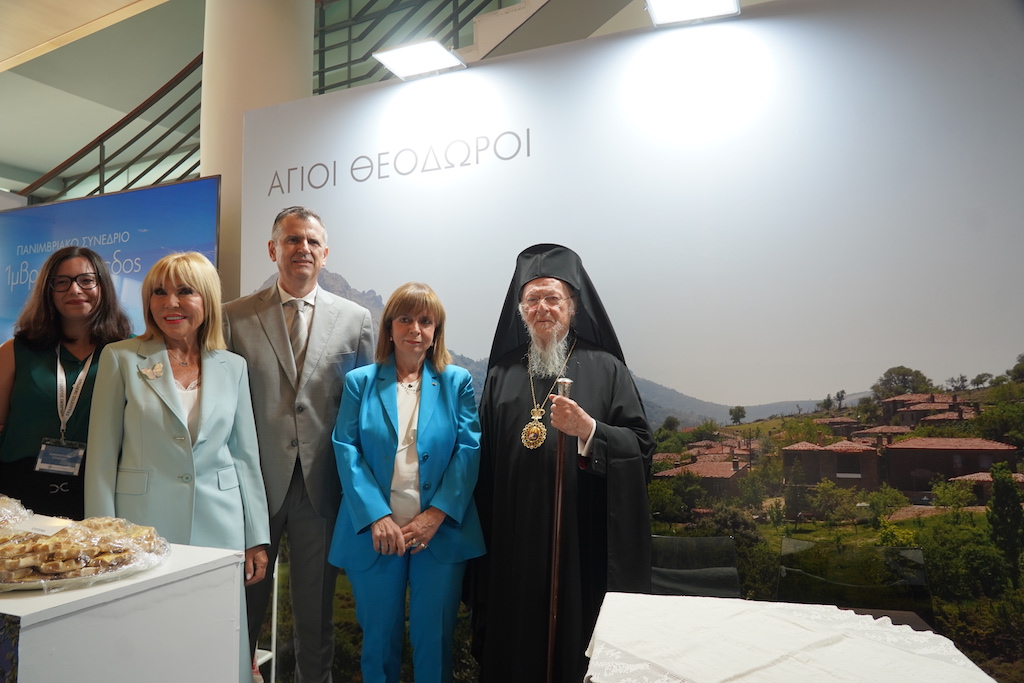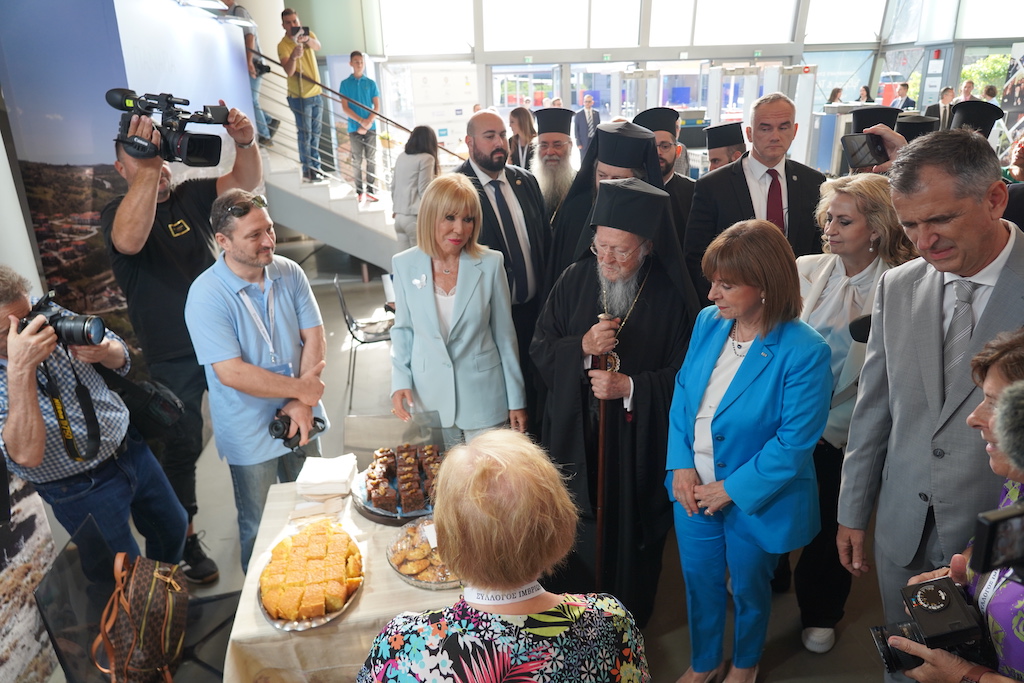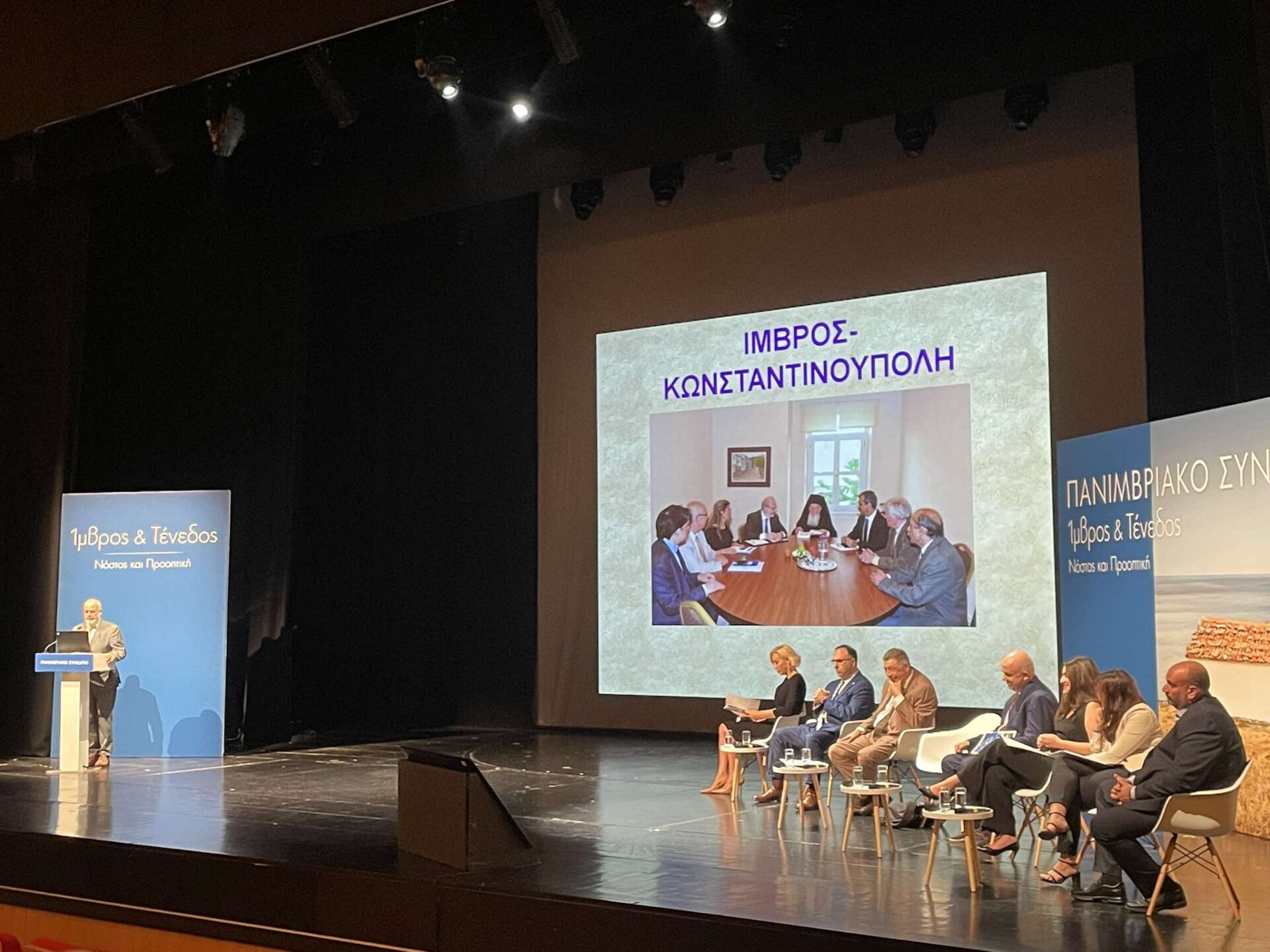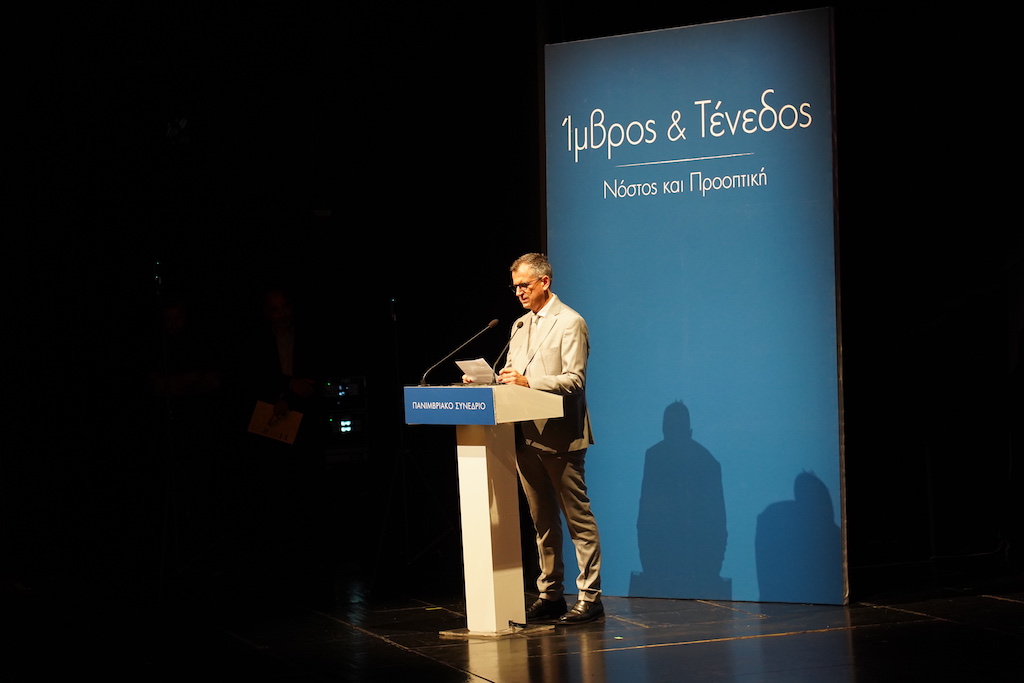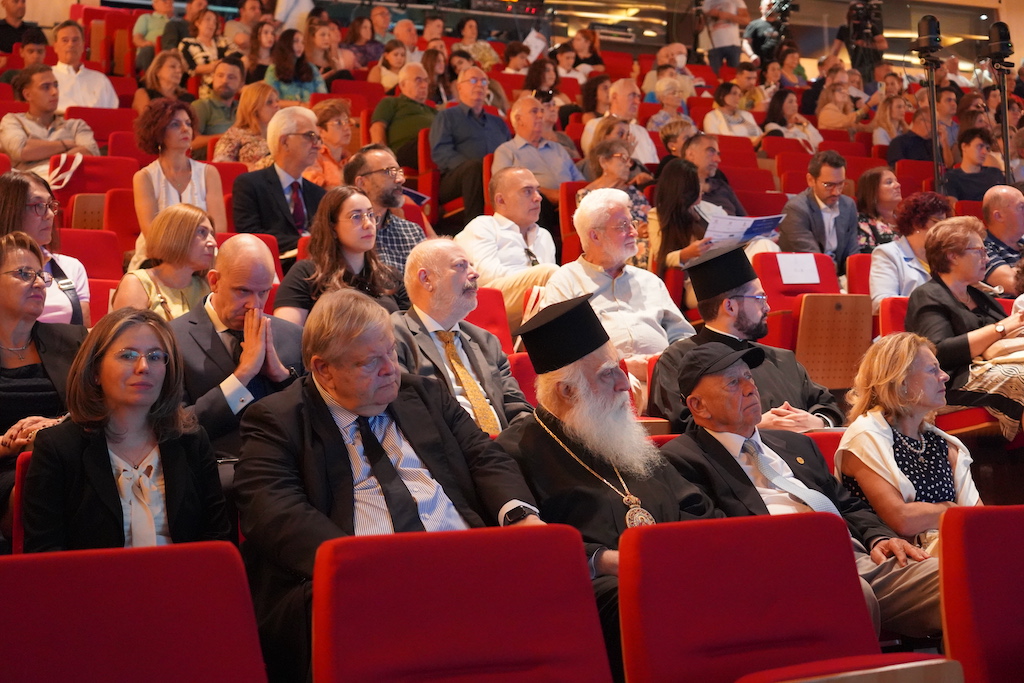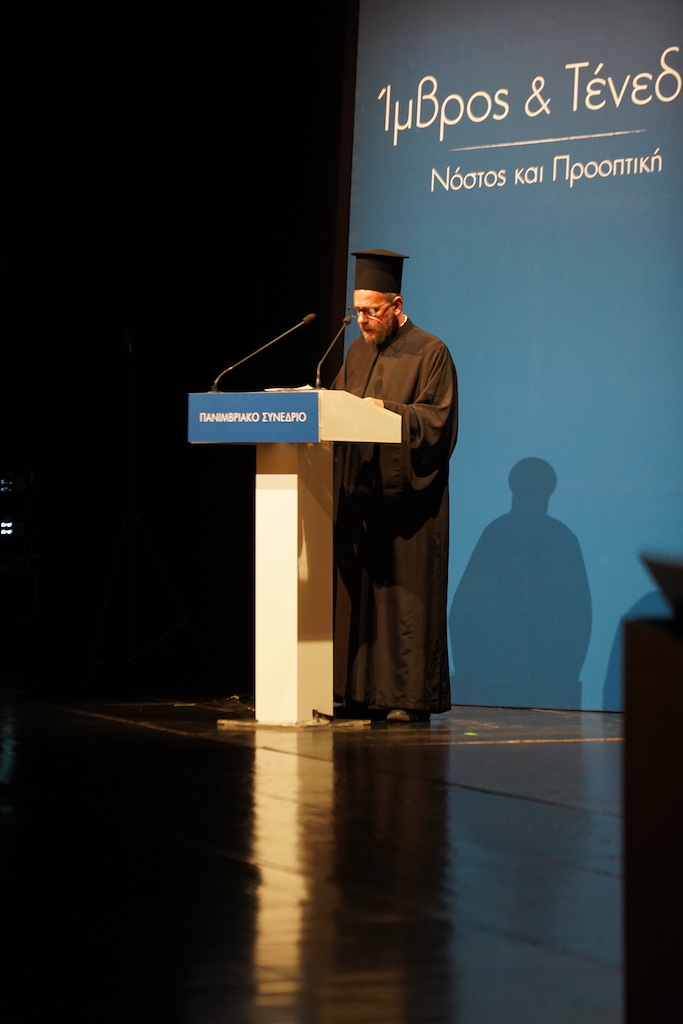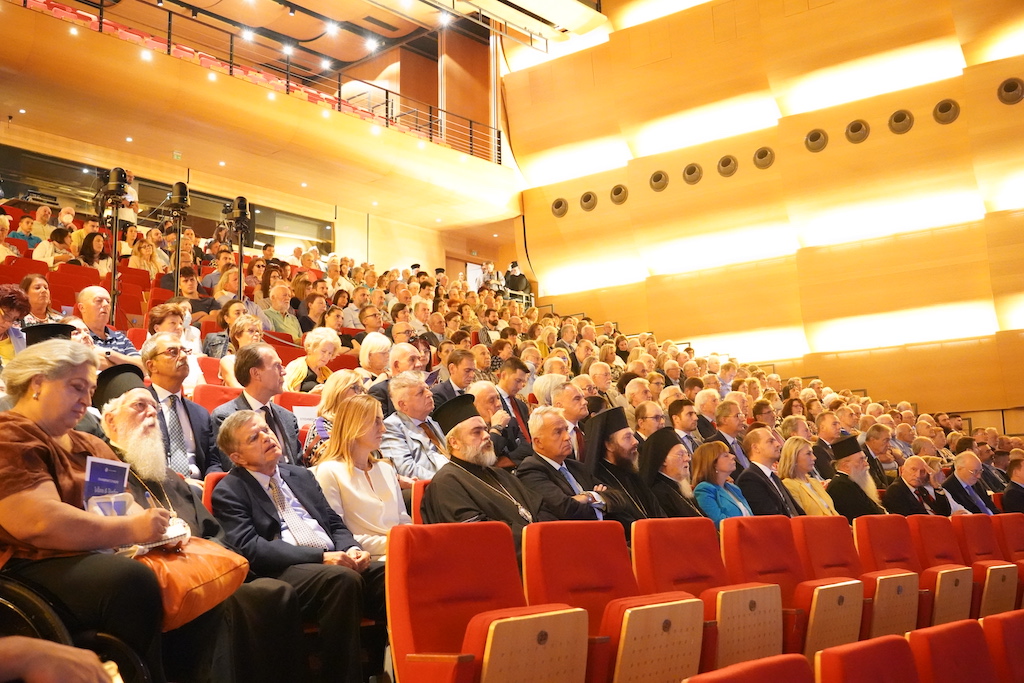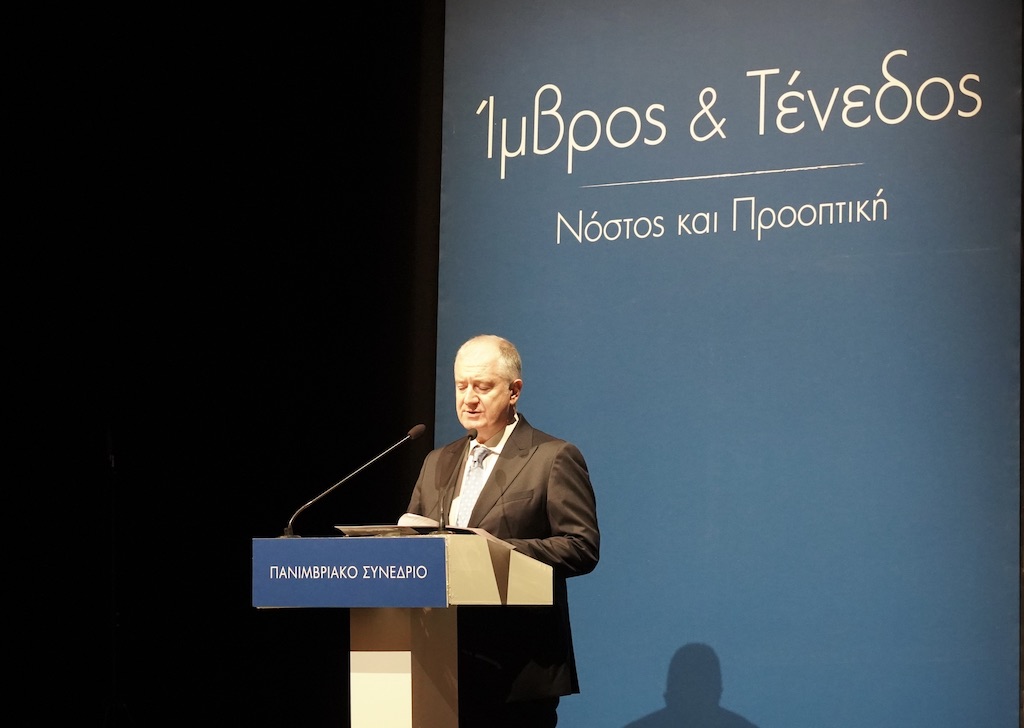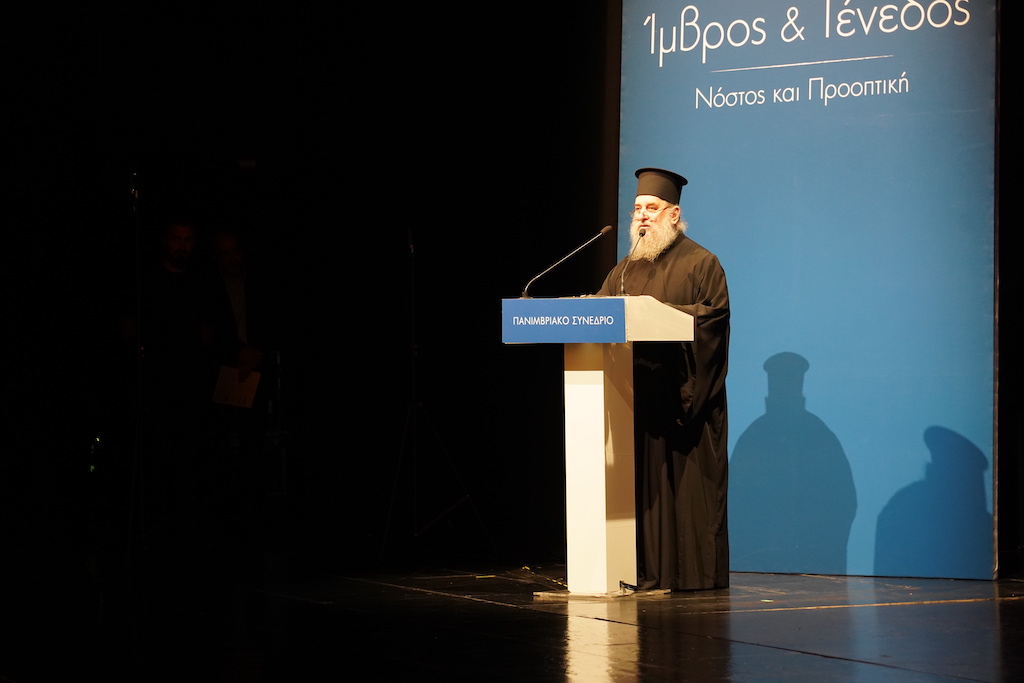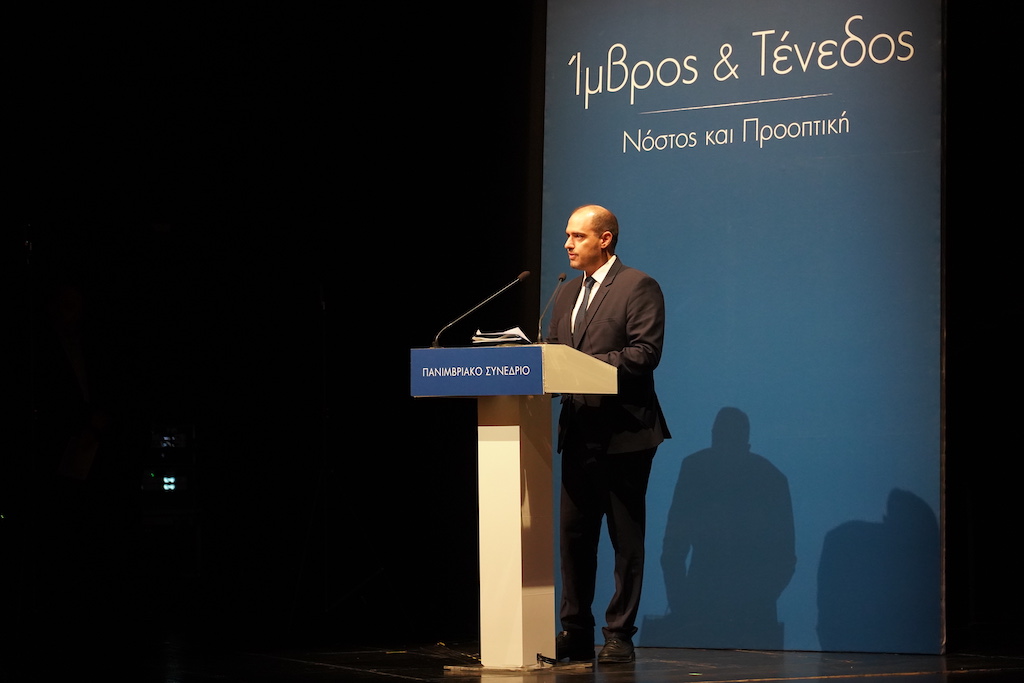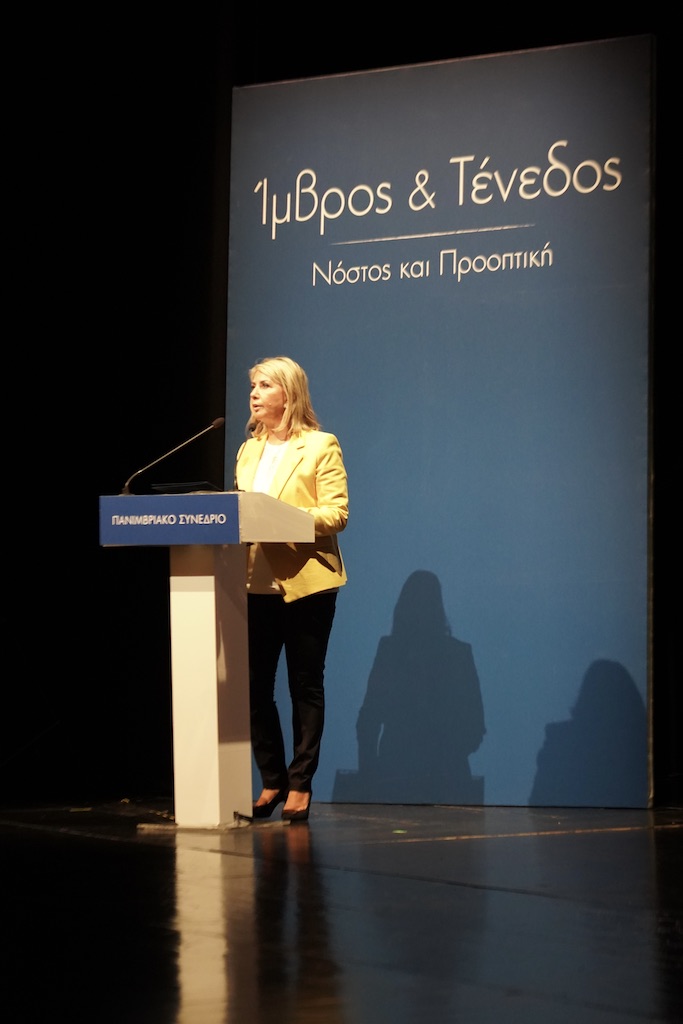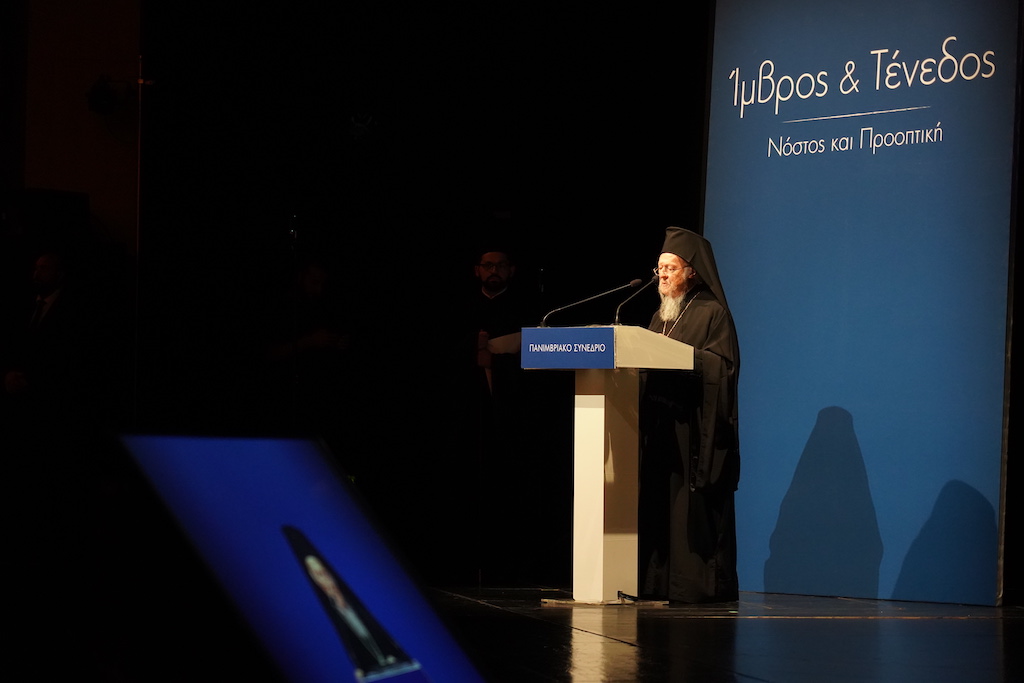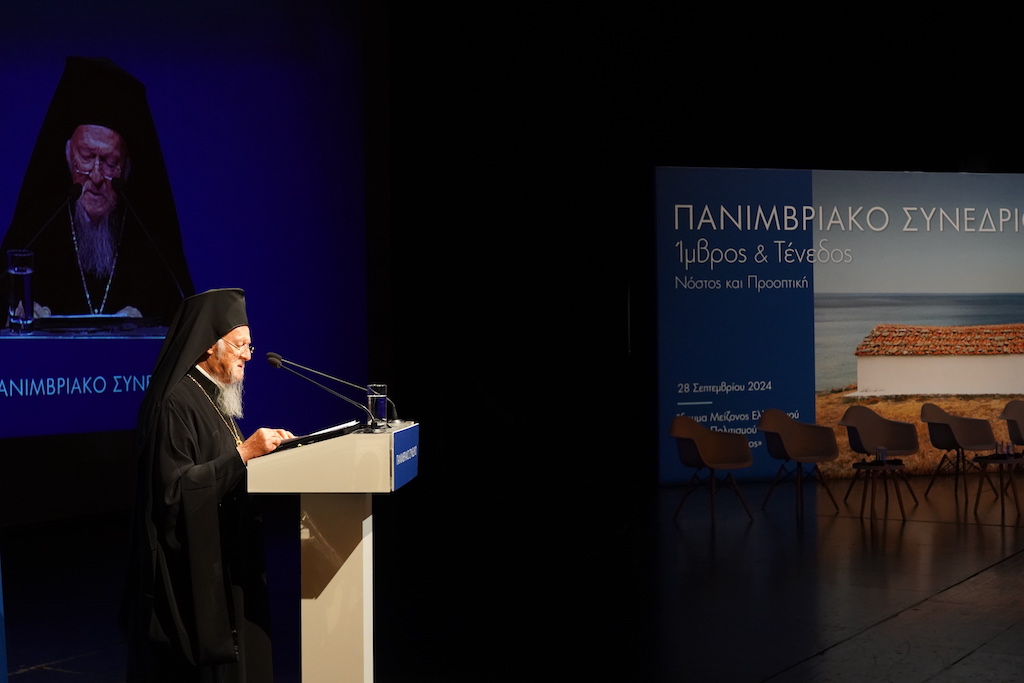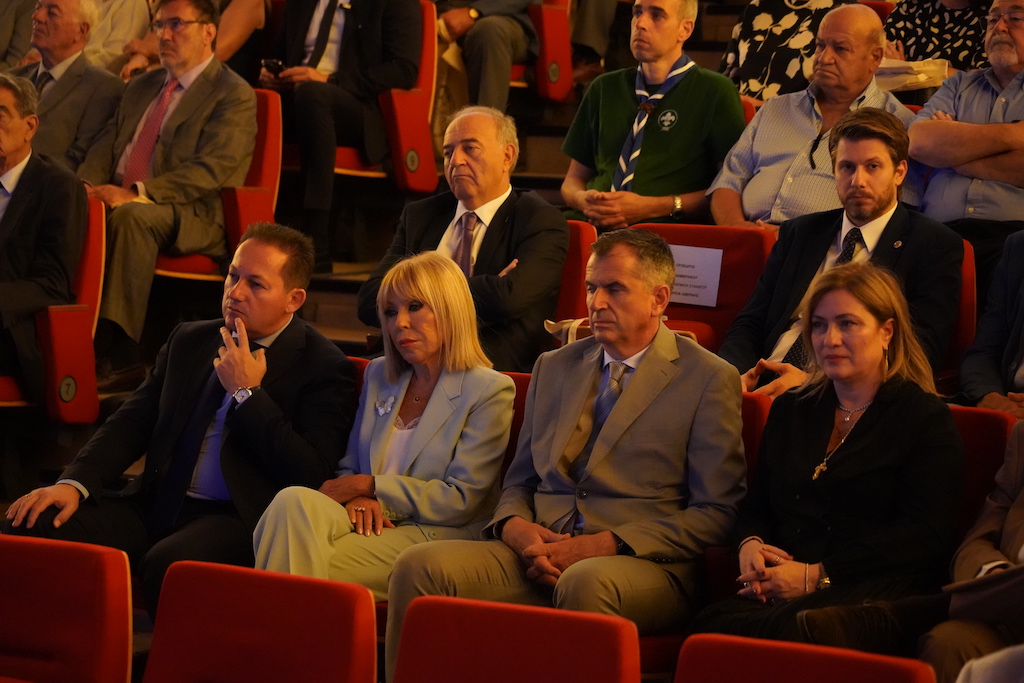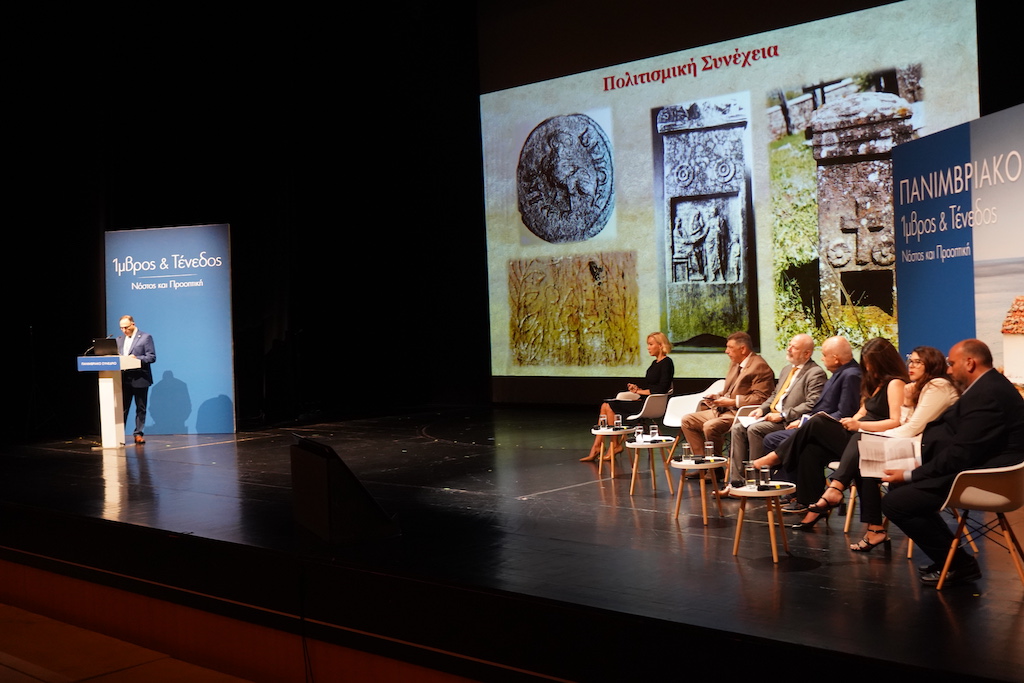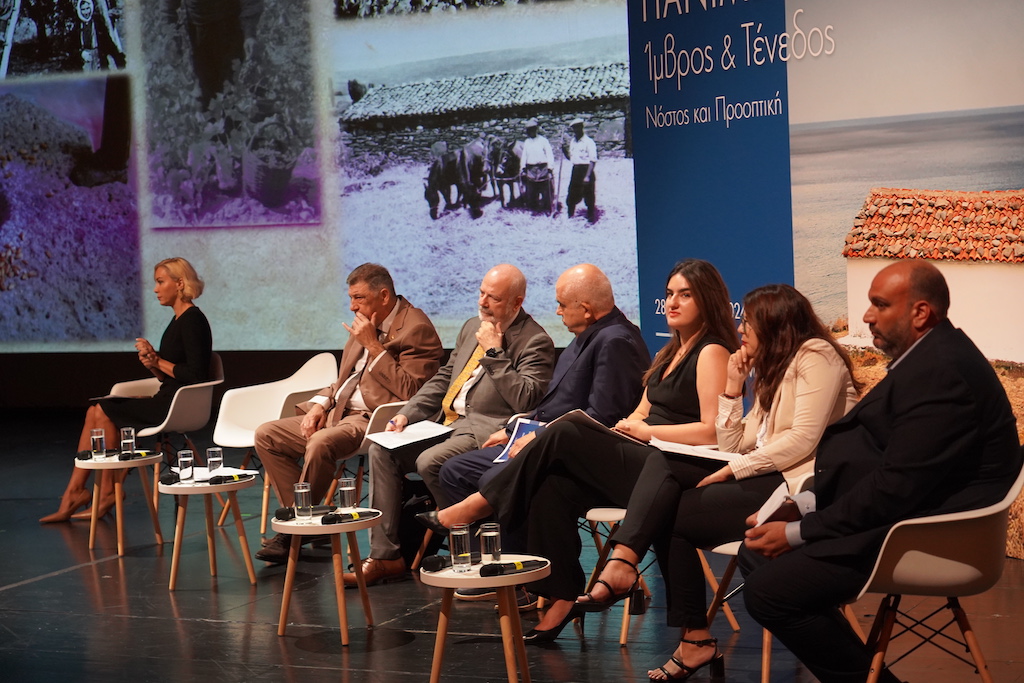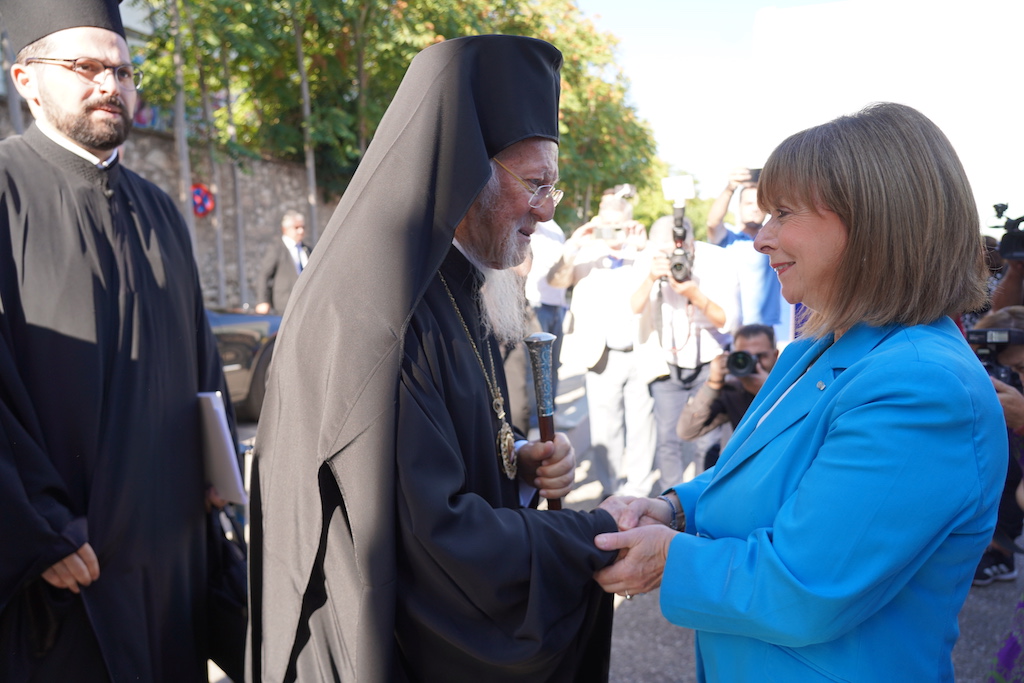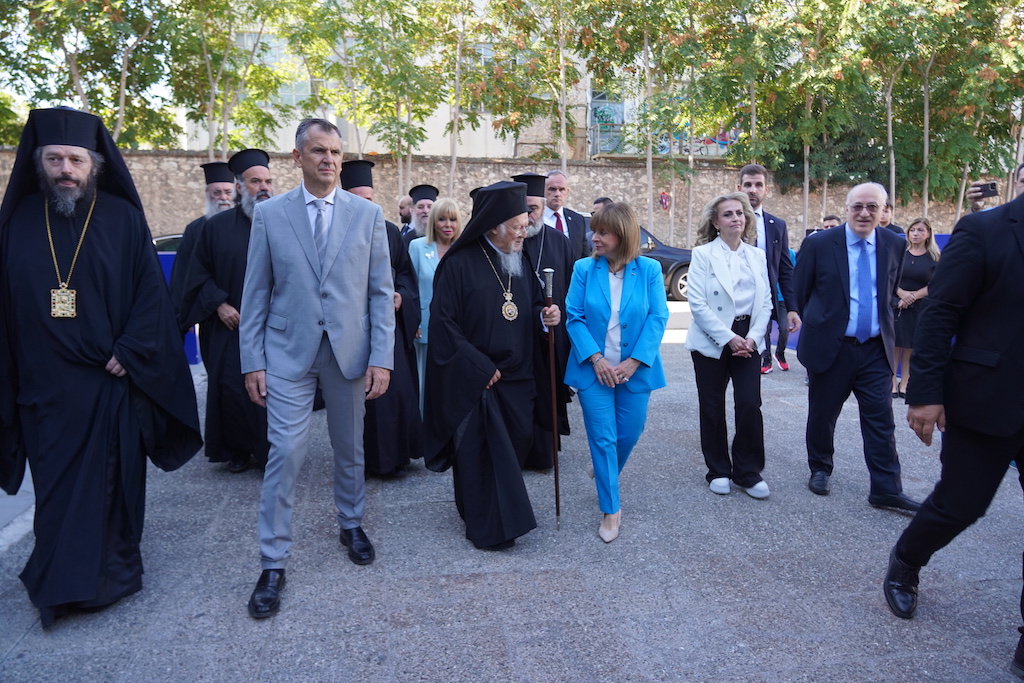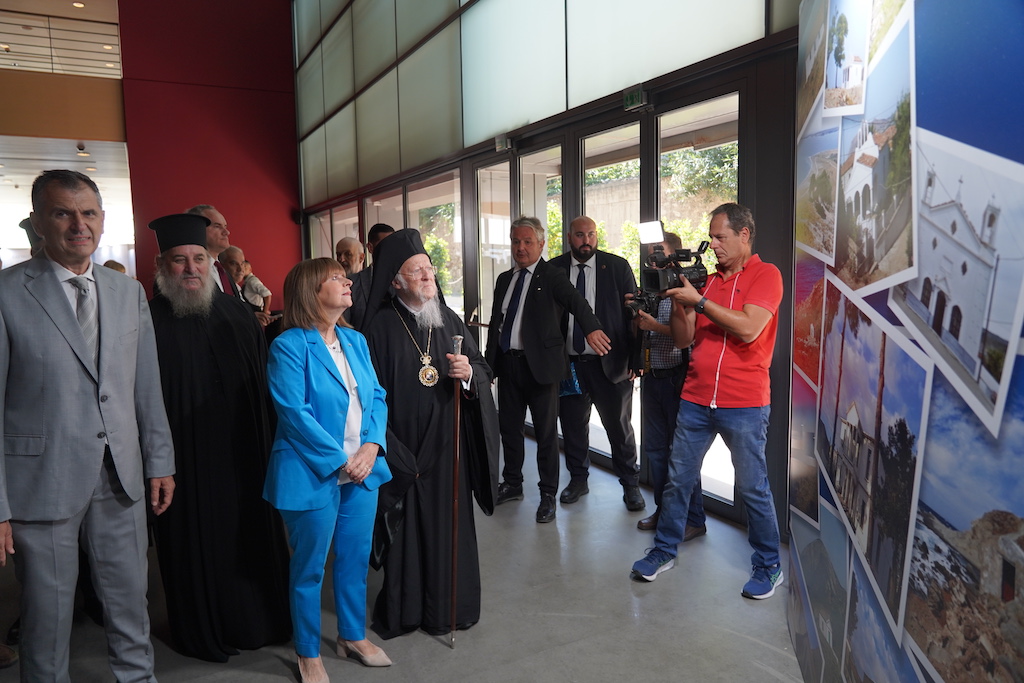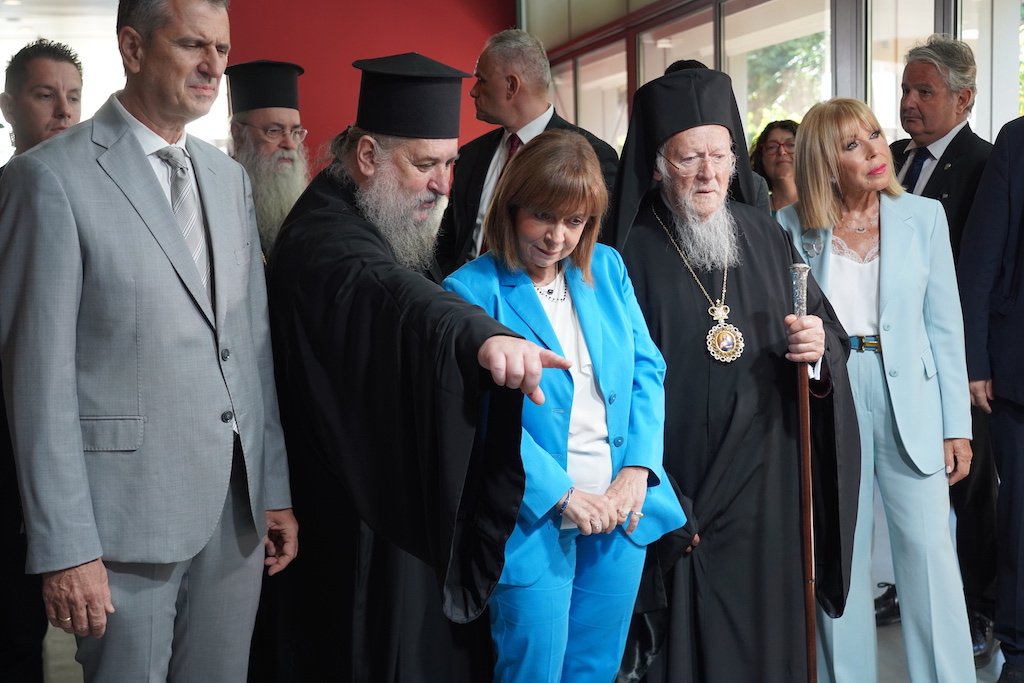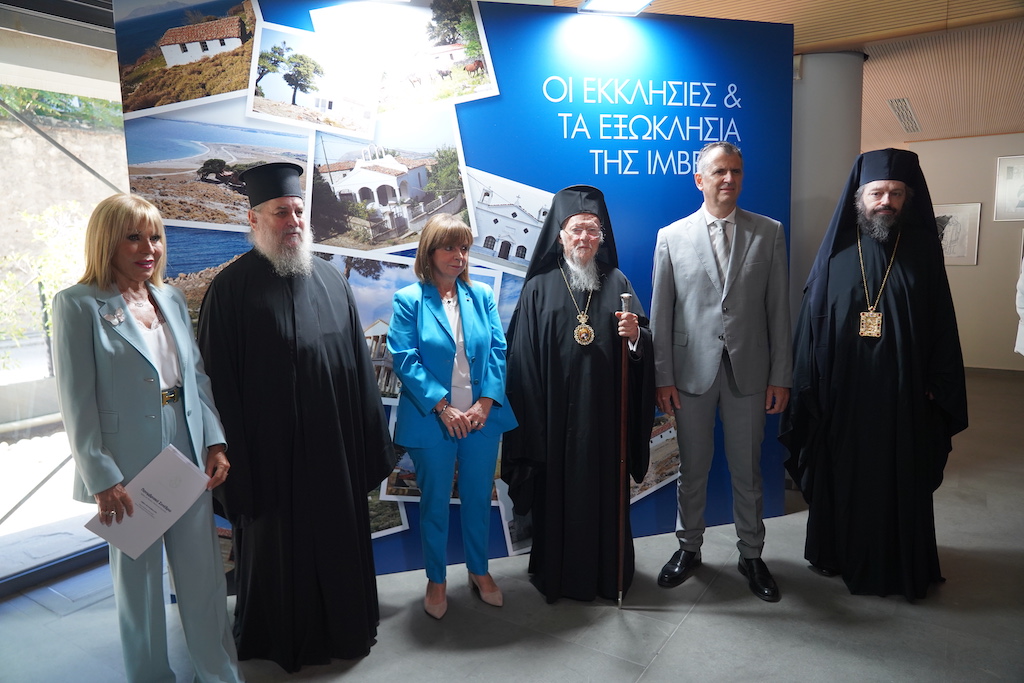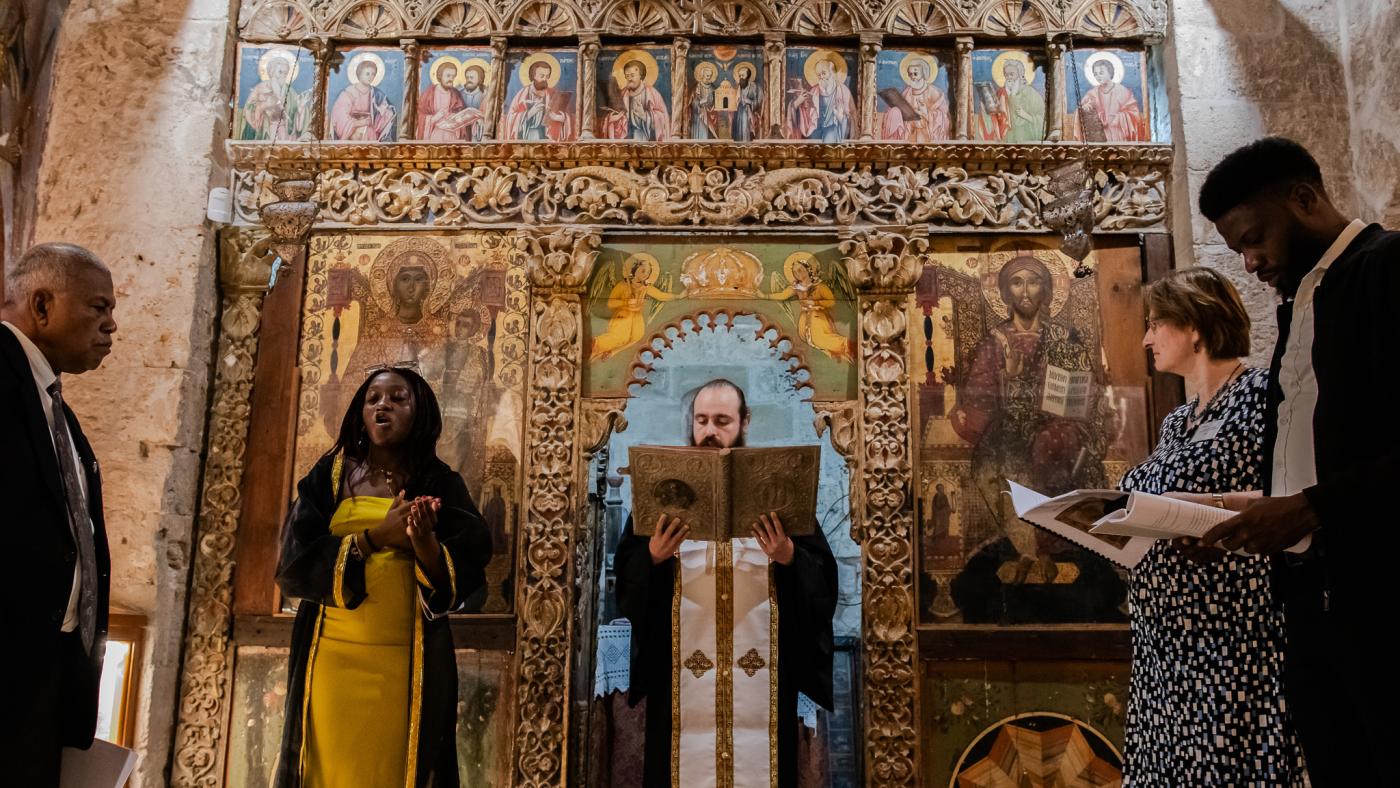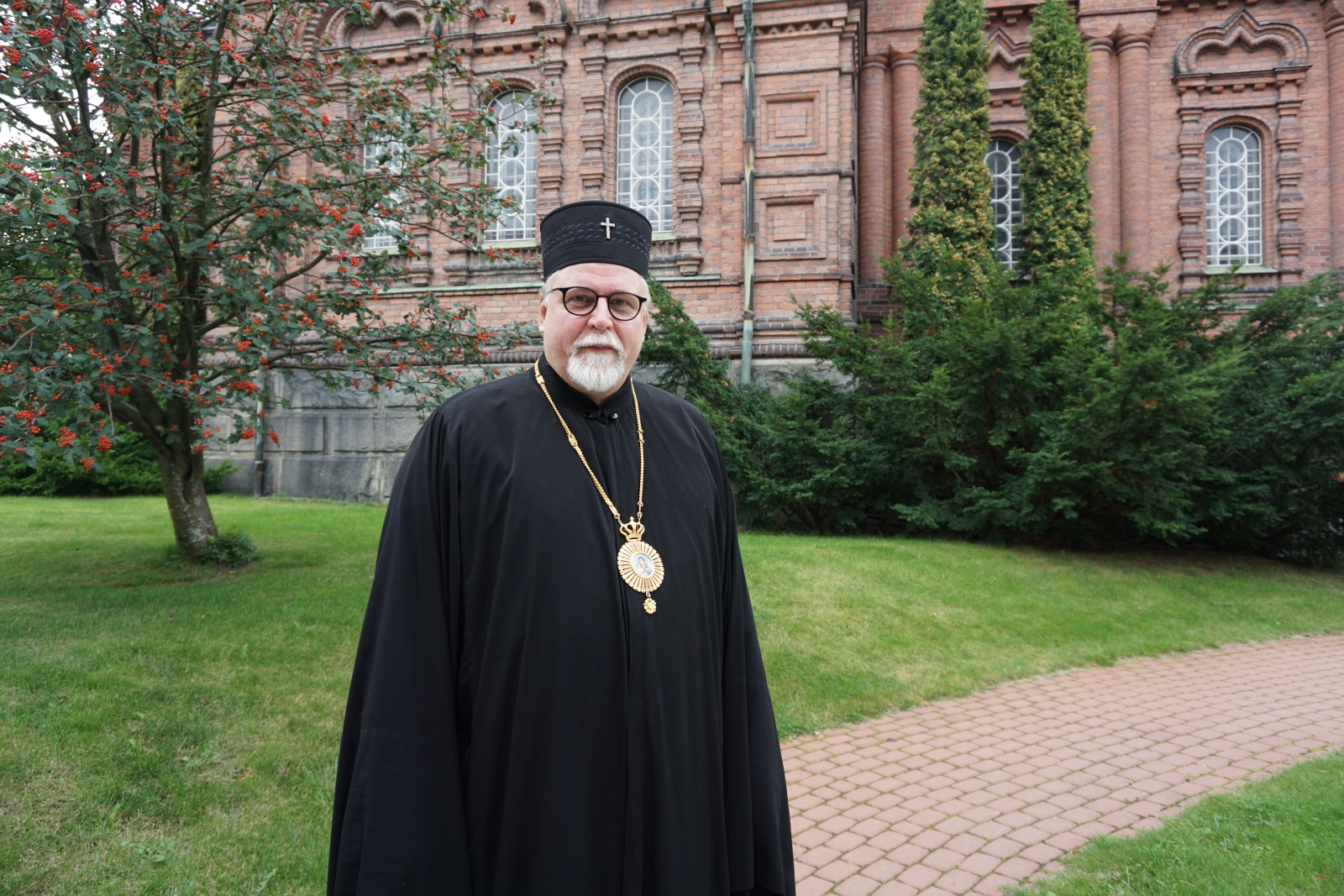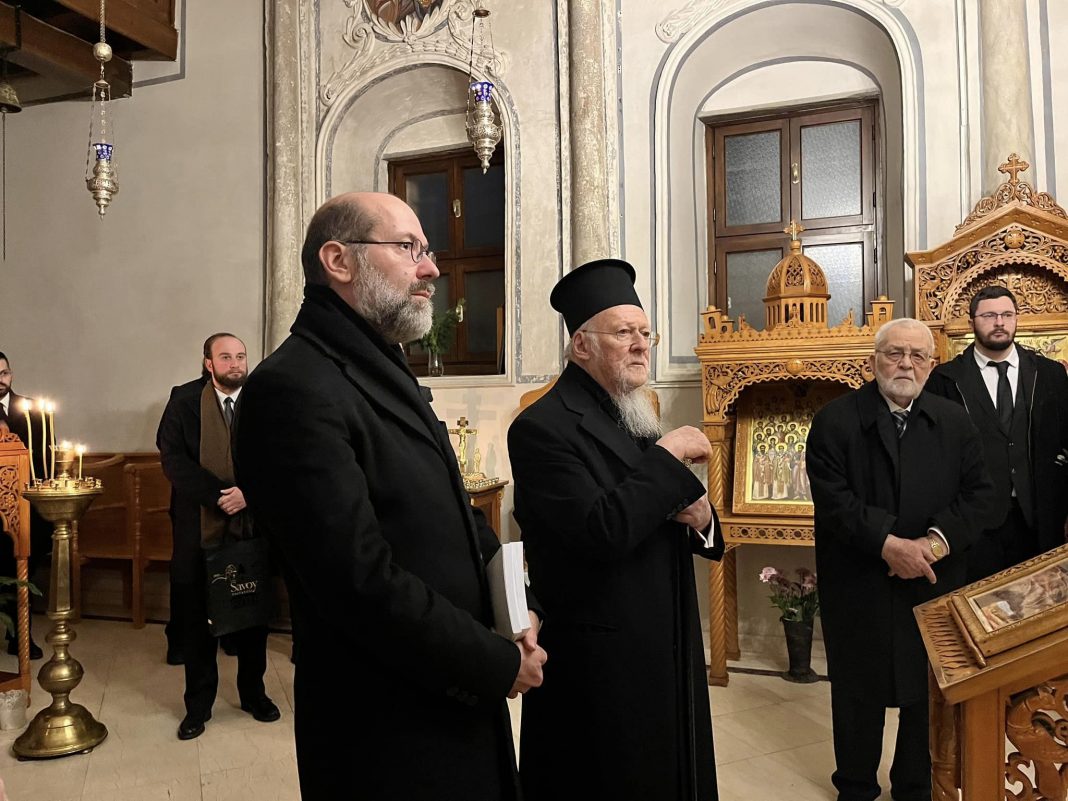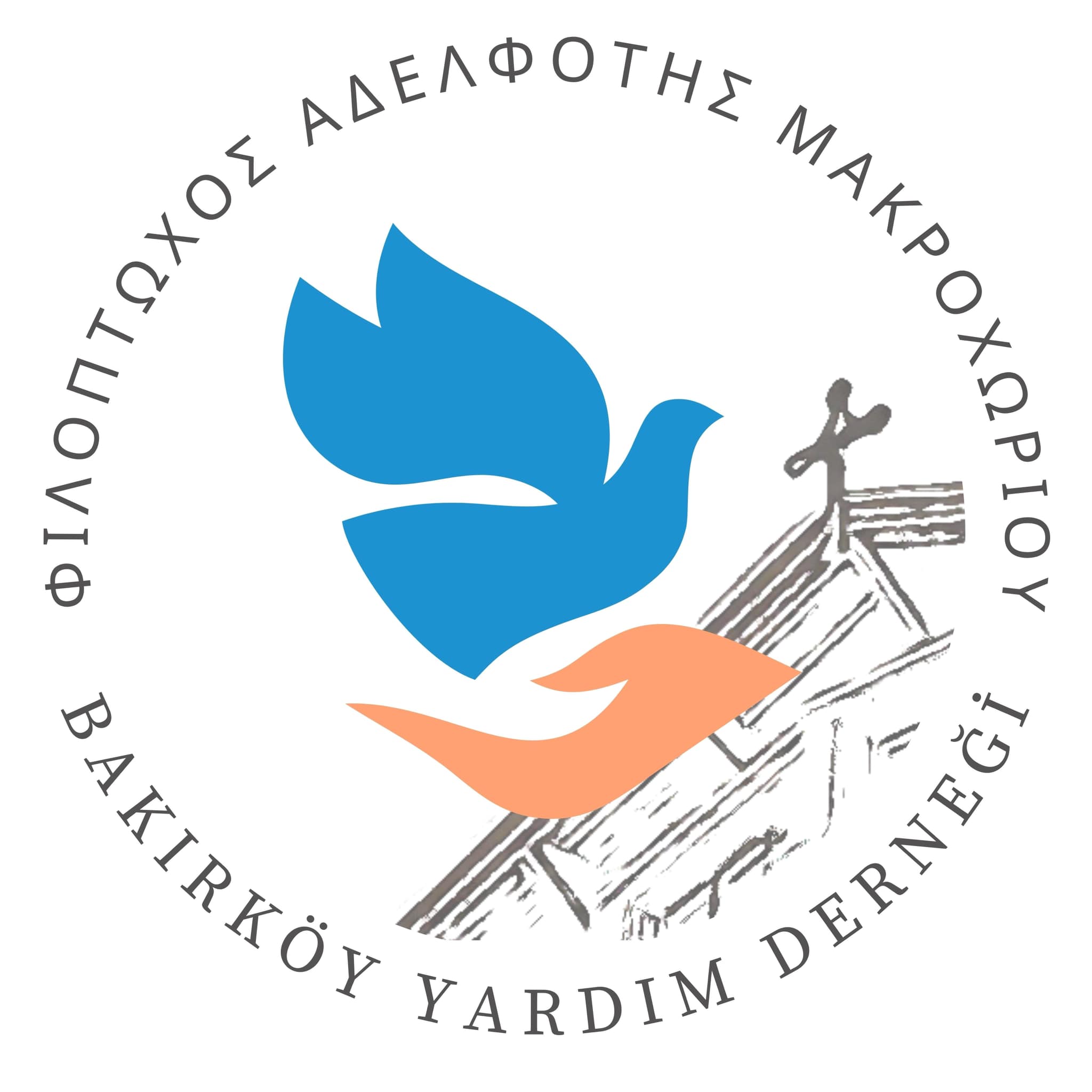The opening speech of the Ecumenical Patriarch at the Pan-Imbrian Conference
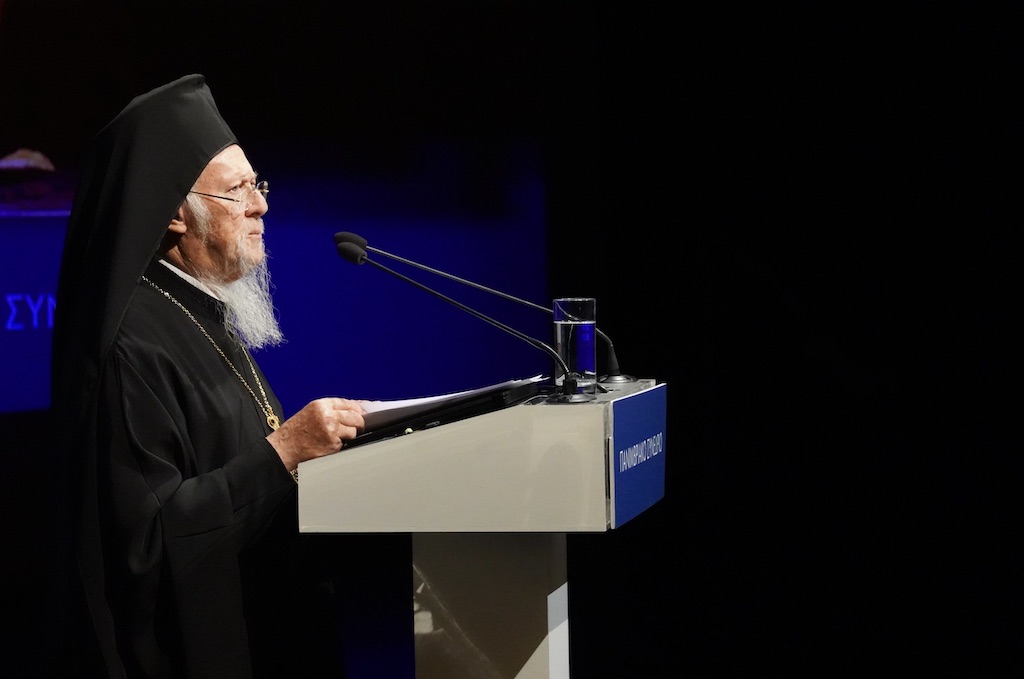

In the presence of the President of the Hellenic Republic, Katerina Sakellaropoulou, and with His All-Holiness Ecumenical Patriarch Bartholomew delivering the keynote address and officially declaring the event open, the Pan-Imbrian Conference commenced at the ‘Hellenic Cosmos’ Cultural Centre of the Foundation of the Hellenic World. The conference is accompanied by a series of events and activities that will take place over the course of two days.
His All-Holiness Ecumenical Patriarch Bartholomew reflected on his birthplace, the historic islands of Imbros and Tenedos, located in the northeastern Aegean. In particular, he expressed both optimism and concern for the future of Imbros, making specific reference to the themes of “nostalgia, return, and the opportunities for those who wish to return, for those who have never left, and for those who have resettled in recent years.”
“The future of Imbros rests with those who carry its spirit in their hearts, preserving it as a cherished legacy, a cultural heritage, and a guiding compass for the present and future. Wherever the Imbrians preserve this spiritual culture within them, Imbros continues to live, as its truth and ethos are embodied in the very being of its people,” he emphasised.
At this point in his speech, he remarked that “Imbros, as a way of life and a hierarchy of values, must be deeply rooted in our hearts so that it can flourish when we return to settle on our island.”
Afterwards, he provided a historical overview of the shared journey and common fate of the two islands up to the present day. “Their shared journey, especially after 1923. Their fate has been intertwined since 1964, the darkest year in Imbros’ long history,” he remarked.


“Imbros and Tenedos are empty. Their residents have become refugees in Greece, Australia, Western Europe, America, and South Africa. The Imbrians, with no prospects for life, no resources, no expatriate education, and living in fear and insecurity, left their beloved homeland and took the path of exile,” he said.
In particular, he commemorated those who remained during the ‘stone years’ in Imbros, “enduring patient deprivations and humiliations, feeling like strangers in their own homeland. Without them, nothing of ours would remain in Imbros today—neither our churches, nor the ancient Imbrian language, nor our villages. We are proud of them and owe them a great debt of gratitude,” he emphasised.
He then spoke of the reopening of the Greek diaspora schools in 2013, “which we had dreamed of and, by the grace of God, were blessed to witness as a miracle, raising our hopes. A decade has already passed, and we move forward with confidence and great expectations.”
He then listed the six main factors that will shape future developments in Imbros: A. The Turkish state and Greek-Turkish relations. B. The Imbrian Diaspora in Greece and abroad. C. The expatriates residing in Imbros. D. The Imbrian youth. E. The Metropolis of Imbros and Tenedos. F. The Imbrian intelligentsia and business community.
“Furthermore, he spoke about future prospects, emphasising that “those who settle on the island must adapt to modern economic, technological, social, and cultural conditions in order to thrive.” However, the ‘spirit of Imbros’ must not be altered or lost in the process of adapting to external demands,” he emphasised.


Finally, he praised the contributions of the two Imbrian associations in Athens and Thessaloniki, expressing his gratitude for the interest shown in Imbros and Tenedos, and extended his heartfelt thanks to the President of the Republic for her gracious support.
Deputy Foreign Minister for Diaspora Greeks, Giorgos Kotsiras, represented the government and delivered a welcoming address.
The Deputy Minister of Education, Religious Affairs, and Sports, Zeta Makri, also delivered an address to the audience.
Metropolitan Kyrillos of Imbros and Tenedos, in his address, emphasised the importance of returning to and sustaining the Greek presence on the islands.
Conference on Imbros and Tenedos: Prospects for Development and the Greek Community
The conference is being held 101 years after the Treaty of Lausanne, 30 years since the last Pan-Imbrian Conference, and 10 years after the reopening of Greek schools in Imbros.
This initiative, organised by the Imbrian Association in collaboration with the Imbrian Union of Macedonia-Thrace and the Tenedos Association ‘Tennis,’ has the support of all Imbrian and Tenedian institutions and is under the auspices of His All-Holiness Ecumenical Patriarch Bartholomew.
Its aim is to contribute to the further increase of the Greek population in Imbros and especially of the students of Greek minority schools, as well as to the creation of an environment of sustainable economic development, said the President of the Imbrian Association, Mr. George Papatheodorou.
